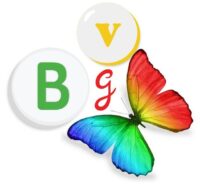In today’s fast-evolving digital landscape era, artificial intelligence (AI) is no longer just a buzzword—it’s an indispensable tool transforming the way we design. Whether you’re a graphic designer, marketer, content creator, or entrepreneur, AI for design is reshaping how visuals are conceptualized, created, and delivered. From generating eye-catching artwork to automating design processes, AI is democratizing creativity like never before.
💡 What Is AI for Design?
AI for design refers to the use of artificial intelligence technologies—such as machine learning, computer vision, and generative models—to enhance, assist, or automate the design process. These tools can create logos, layouts, illustrations, social media content, and even full branding packages, often in minutes.
✅ Key Advantages of AI in Design
1. Speed and Efficiency
AI drastically take make less time spent on repetitive tasks like resizing images, applying templates, or creating variants. Designers can focus more on creativity and strategy.
2. Inspiration and Ideation
AI can suggest color schemes, design elements, and layouts based on current trends or brand identity. It’s like having an intelligent friend.
3. Cost-Effective
Startups and individuals with limited budgets can access high-quality designs without hiring a large creative team.
4. Personalization at Scale
AI tools can generate customized content for different audiences, perfect for digital marketers running multichannel campaigns.
5. Accessibility for Non-Designers
Even without a formal design background, anyone can create polished graphics using AI-powered platforms.
🎨 Popular Tools to Create AI-Driven Designs
Here’s how you can harness popular platforms to bring your AI-powered designs to life:
🔹 Adobe Firefly + Adobe Creative Cloud
Adobe’s suite now includes Firefly, a generative AI that helps create graphics, text effects, and images based on prompts. Integrated into Photoshop and Illustrator, Firefly allows designers to:
Generate custom backgrounds.
Add or remove objects with AI fill.
Convert text to image or text effects in seconds.
🔹 Canva’s AI Magic Studio
Canva has introduced powerful AI features that let users:
Use Magic Design to auto-generate templates.
Leverage Text to Image to create unique visuals from simple prompts.
Use Magic Write, an AI copywriter, to generate catchy text for marketing content.
Canva is ideal for entrepreneurs, educators, and content creators looking for a fast, intuitive design solution.
🔹 ChatGPT for Content + Design Ideas
While not a design tool directly, ChatGPT is valuable for:
Generating design prompts for AI art tools.
Writing compelling product descriptions, slogans, or campaign ideas.
Planning branding strategies or visual storytelling.
Example: Ask ChatGPT, “Give me 10 prompt ideas for Midjourney to create minimalist travel posters.”
🔹 Midjourney (Discord-based AI Art Generator)
Midjourney excels at generating high-quality, artistic images from text prompts. Designers use it for:
Concept art
Branding visuals
Poster designs
Fashion lookbooks
💸 How to Make Money with AI Design
1. Freelancing
Offer AI-enhanced services on platforms like:
Fiverr (AI logos, social media kits, custom illustrations)
Upwork (AI-generated branding concepts or presentation designs)
2. Selling Templates and Assets
Design templates using Canva or Adobe and sell them on:
Creative Market
Etsy (wedding invites, planners, resumes)
3. Social Media Management
Use AI to create entire content calendars—posts, captions, visuals—and manage accounts for small businesses.
4. YouTube or Online Courses
Teach others how to use AI tools for design. Share tutorials, build an audience, or create a paid course on platforms like Udemy or Skillshare.
AI for design is not about replacing human creativity—it’s about supercharging it. These tools empower professionals and amateurs alike to ideate work smarter, and create more impactful designs. Whether you’re starting a side hustle, building your brand, or exploring new creative horizons, mastering AI design tools can open doors to limitless opportunities—and real income.
In the world of AI, creativity is not being automated—it’s being amplified.
